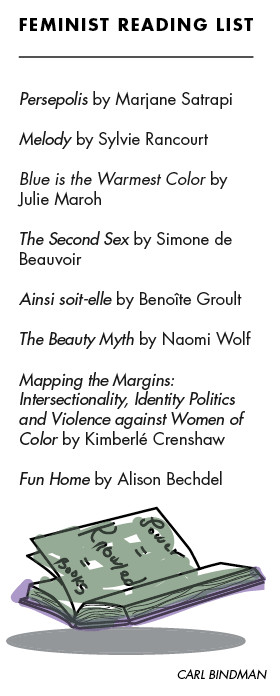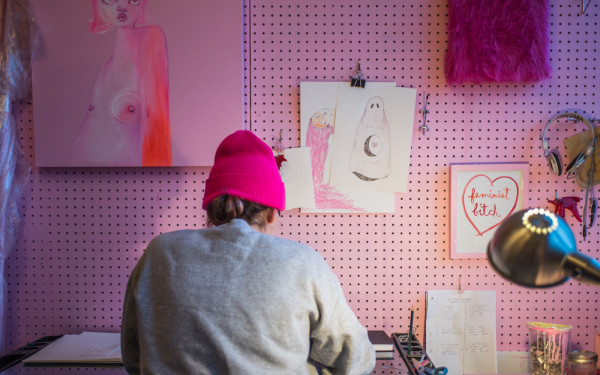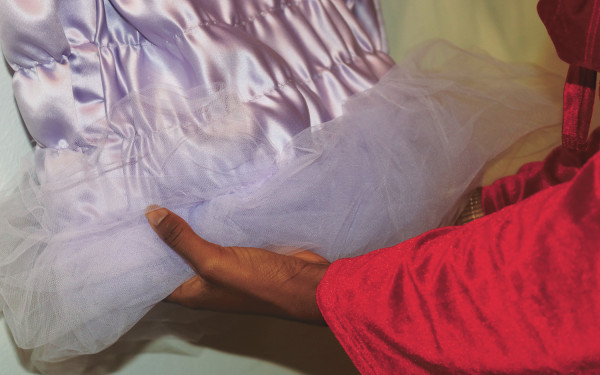A Feminist Bookstore in Montreal
New Feminist Bookstore Hopes to Open in Town
There were few words to tell the story of Melody, a nude dancer in Montreal, but pages filled with black-and-white naked women.
A collective of five students and book enthusiasts hope to introduce a feminist community space in Montreal’s Centre-Sud area to display literary works like Melody, by Sylvie Rancourt.
On March 14, the group will be launching an Indiegogo campaign that will last six weeks. They hope to raise $20,000 to open a feminist cooperative bookstore, as well as receive subsidies and loans to invest in buying 6,000 to 10,000 used and new books, furnishing the space, opening a café area and paying rent.
Raising the money is compulsory to their plan to open the bookstore, said Stéphanie Dufresne, one of the organizers, and a student at the Simone de Beauvoir Institute at Concordia. The collective hopes to open the bookstore in September 2016, a date that coincides with the new school year and the literary year.

The bookstore will be called L’Euguélionne—a clin d’oeil to the first feminist novel published in Quebec by Louky Bersianik. Bersianik is “a very influential feminist writer,” said Chantal Maillé, professor at the Simone de Beauvoir Institute. “She played a very important role in the creation of a distinct Quebec feminist cultural space.”
The bookstore hopes to hold a broad collection of literature from all over the world, keeping at the forefront a variety of “marginalized” female voices, “who don’t necessarily win the Goncourt [prize],” Dufresne said. “It’s not one feminism, but many feminisms that will be represented.”
They want to offer a variety of fiction, poetry, plays, zines and art books that will reach both a specialized and non-specialized audience.
Marie-Ève Blais, another coordinator who currently works at a bookstore, joked that they want to welcome anyone from PhD students working on their thesis, to children looking for alternative colouring books, redefining gender stereotypes.
L’Euguélionne will offer a physical space that exists beyond the internet sphere—something that the organizers feel is missing in the feminist community of Montreal—where people can gather with other curious individuals.
“Many people started to realize that something got lost in the process [of buying books on the internet] and people want to get back to having a space that’s embedded in the community,” Dufresne said. At the bookstore, “you can go further than exchanging money for a product.”
The space hopes to offer workshops led by feminists. It will be a cultural centre, crafted for discussion and discoveries.
“People will be able to meet through literature,” Blais said.
“People will be able to meet through literature.” — Marie-Ève Blais, one of the five feminist bookstore coordinators.
Last week, controversies arose across the province as Lise Thériault, the Quebec’s Minister for the Status of Women, announced she didn’t identify as a feminist. After backlash from the public, she rectified her statement and “converted to feminism in 24 hours,” Maillé laughed.
Thériault’s statement resonates with the misconstrued connotation around the concept of feminism, which older generations still hold on to, Maillé explained.
“There is a revival of interest and glamour around the word feminism,” Maillé said. “There’s a new generation of young women and men who find value in it.”
Having open spaces where exchanges and communication can take place is an important step forward, said Maillé referring to the collective’s effort to open L’Euguélionne.
“Montreal is in need of that kind of space,” she said. “There’s a lot of these exchanges on the web, but people want to meet physically.”
The Simone de Beauvoir library offers a similar space at Concordia. It’s a reading room that displays a collection of older books and documents—mostly non-fiction—for students who are studying or interested in the field.
“These spaces are an extremely valuable contribution to the community and more specifically to the feminist community,” Maillé said.

_900_600_90.jpg)



_600_375_90_s_c1.jpg)

